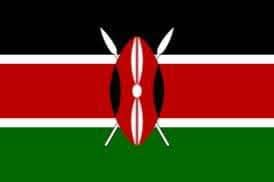Kenya Reaffirms Support for Somalia’s Sovereignty Nairobi, Kenya – May 26, 2025 — The Government…

Israel’s war cabinet agrees to send a negotiating team to Paris for hostage talks
CNN News
Published: Feb.,23 2024 11:08 AM(EAT)
Israel’s war cabinet has agreed to send a negotiating team, led by Mossad Director David Barnea, to Paris on Friday to pursue talks over a potential ceasefire and hostage release deal, an Israeli official said.
The negotiating team is expected to be empowered to engage in substantive negotiations rather than simply listening to proposals as they did during meetings in Cairo last week, the official said.
The full Israeli cabinet is expected to vote on the matter overnight to give final approval for the trip.
CIA Director Bill Burns and his Egyptian and Qatari counterparts were expected to be in Paris on Friday for talks, two sources familiar with the plans told CNN on Wednesday. The Israeli government had yet to confirm its attendance.
The decision came during a war cabinet meeting Thursday night, at the end of a day that saw US President Joe Biden’s Middle East coordinator Brett McGurk meet with top Israeli officials, including Prime Minister Benjamin Netanyahu.
The Israeli official said the Israeli government had been waiting for confirmation that medication had reached the hostages in Gaza before agreeing to return to the negotiating table.
That proof, combined with positive indications from talks in Cairo on Wednesday and prodding from US officials, ultimately triggered the Israeli agreement to send a negotiating team to Paris.
This comes after CNN reported that the Biden administration is racing against the clock to secure a ceasefire in the Israel-Hamas war before Ramadan next month, with senior US officials believing the release of more than 100 Israeli hostages from Gaza is the only plausible way to bring the first pause to the deadly conflict since a seven-day truce in late November.
Looming over the hostage deal discussions is the threat by Israel to launch an offensive into Rafah in southern Gaza, where more than a million displaced Palestinians have fled. US officials have pointedly warned Israel against pushing farther south without guaranteeing the safety of those civilians.
Hamas leaders have been in Cairo this week, meeting with Egyptian officials to try to move the deal forward after Netanyahu dismissed the most recent series of the militant group’s proposals as “delusional.”
Among the biggest sticking points, people familiar with the talks say, were Hamas’ demands for the release of some 1,500 prisoners in the first phase, for Israeli troops to leave Gaza and discussions that would lead to a formal end to the war.
Hamas’ political leader Ismail Haniyeh on Thursday concluded his three-day trip to Egypt, where he met with the head of Egyptian intelligence Maj. Gen. Abbas Kamel. They discussed the situation in Gaza and a potential hostage-prisoner exchange, according to a Hamas statement Friday.
The first hostage deal in late November saw the return of dozens of hostages taken captive by Hamas on October 7 and a week-long truce. Since the end of that truce three months ago, civilian casualties have soared in Gaza, as has global condemnation of Israel’s military operation and the political pressure on the Biden administration to call for a permanent end to the war.
High stakes
Israel has warned that if a hostage deal is not reached by the start of Ramadan on March 10, the Israeli military will press ahead with its planned offensive in Rafah, despite increasing international calls for restraint.
During a meeting at the Ministry of Defense headquarters in Tel Aviv Thursday, Defense Minister Yoav Gallant said Israel is “expanding” the authority held by hostage negotiators, and that the Israel Defense Forces were “preparing the continuation of intense ground operations,” according to a statement from his office.
Rafah is the last refuge for Palestinians fleeing Israel’s bombardment and more than 1.5 million people are crammed into a sprawling tent city packed against the Egyptian border, with families living with severe shortages of food, water, medicine and shelter.
In recent weeks, the Israeli military has ramped up aerial attacks on parts of central and northern Gaza. Entire families have been erased and displacement shelters flattened. Hundreds of thousands of displaced civilians who once found refuge in hospitals are now on the run again – as medical facilities across the enclave are crushed by bombardment or besieged.
On Thursday evening, at least 23 people died following Israeli airstrikes in central Gaza, according to the Ministry of Health in Hamas-run Gaza. The ministry did not provide further details but said the death toll could rise.
CNN cannot independently verify the number of casualties on the ground and has reached out to the Israeli military for comment on the strikes.
It follows Israeli attacks throughout the week that killed at least 118 Palestinians in a 24-hour period Wednesday, according to the Ministry of Health. Among the dead was a prominent doctor and his daughter, a human rights lawyer, and an international soccer referee.
One of the last doctors at Nasser hospital in Khan Younis, southern Gaza, has described a “desperate and catastrophic” situation with no “electricity, oxygen, heating, barely any food or water” after Israeli forces raided the complex last week.
Israel launched its military offensive after the Hamas-led October 7 attacks in southern Israel, which killed about 1,200 people. Israeli attacks on Gaza have since killed at least 29,313 Palestinians and injured at least 69,333 others, according to the Ministry of Health in Gaza.



This Post Has 0 Comments